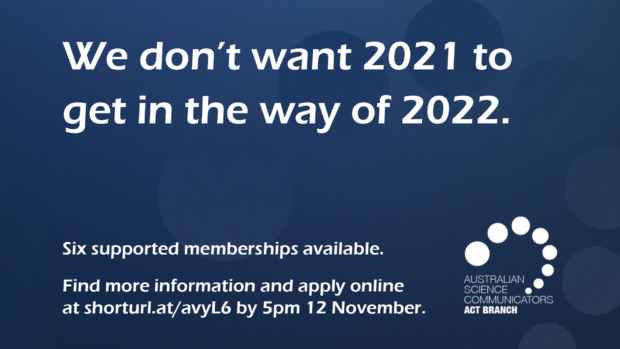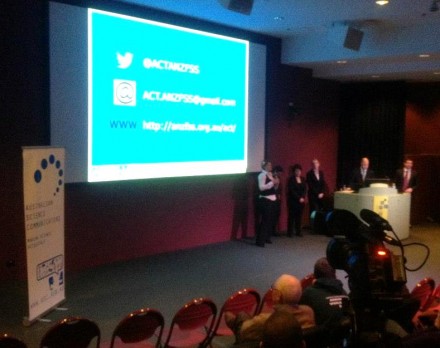
ASC Canberra’s COVID-19 response is aimed at supporting and growing our community of science communicators. We want to help people who want to be members of our organisation, as many look towards rebuilding in 2022 following the disruption of the 2020-21 pandemic.
ASC Canberra would like to offer six people financial support to join or continue their membership with the Australian Science Communicators for the 2022 calendar year, funded by the ACT Branch of ASC. These supported memberships will fall into three categories:
- students who will be studying in the ACT SciComm field during 2022
- recent SciComm graduates who will be beginning their career journeys in the ACT during 2022, who graduated during 2020 or 2021
- established practitioners in the ACT SciComm field, who may have experienced income drops during 2020-21
The six successful applicants will receive paid membership to ASC for one year, funded by the ACT Branch. Recipients will be invited to engage with ASC’s branch committee to offer input into the branch’s direction for 2022.
To apply for this opportunity, respond by 5 pm AEDT, Friday 12 November to the question “what are you most looking forward to achieving as a science communicator in 2022 and how will this membership help?” Responses should be less than 200 words, and should speak to either your personal ambitions for 2022, or how you would like to engage with the ASC ACT community during the new year.
As well as welcoming existing members of ASC’s community, we encourage newcomers who have not previously been a part of ASC to apply for this opportunity.
Apply via this form: https://forms.gle/pXyWzamyMPnoByX47
The recipients of these six paid memberships will be assessed by ASC ACT Branch’s organising committee, and announced during the branch’s AGM on 29 November 2021.
The branch committee is looking forward to reading your responses, as we look towards a bright 2022.
Terms and conditions can be found on page 2 of this document.


